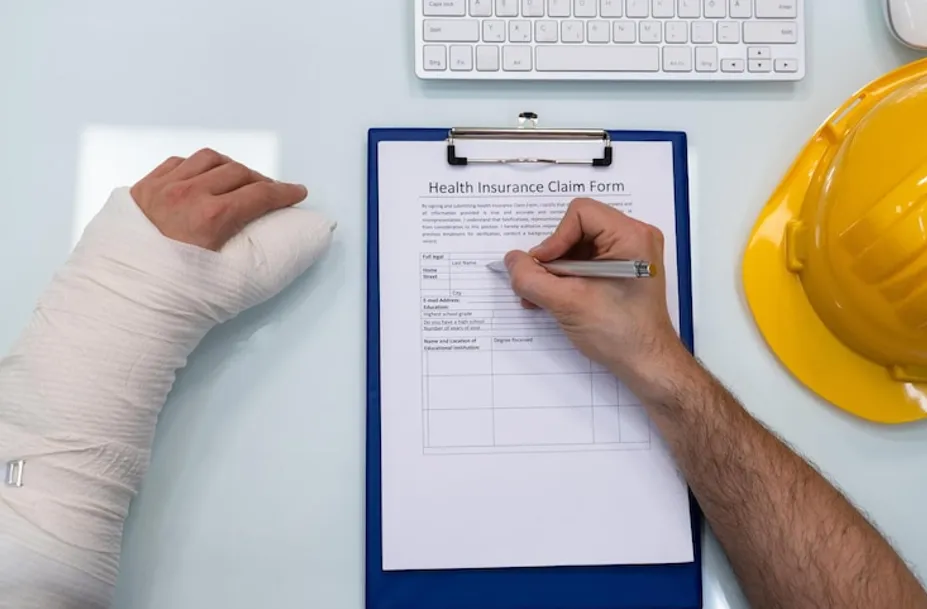What if a single moment—just a slip, a crash, or a careless act—could change your life forever?
Every year, thousands face injuries—and the financial strain that follows—through no fault of their own. Whether it’s a car wreck, workplace incident, or a fall on unsafe property, the aftermath often leaves victims feeling powerless.
In Stevens Point, personal injury cases are more common than many realize. Portage County sees hundreds of traffic-related injuries yearly (Wisconsin DOT), and with the state’s comparative negligence laws, delays can hurt your case. Given these challenges, consulting a personal injury lawyer in Stevens Point is critical to protecting your rights.
So why do these claims matter? They’re not just about compensation—they’re about holding negligent parties accountable and ensuring victims aren’t left to struggle alone. Here’s how they work, what your rights are, and why taking action now could be the most important step toward recovery.
What Is a Personal Injury Claim?
At its core, a personal injury claim is a legal process that allows an injured person to seek compensation when someone else’s actions—or inaction—caused them harm. This harm can be physical, emotional, or financial. Examples include car accidents, slip-and-fall incidents, dog bites, and workplace injuries.
A successful claim must show that another party was negligent or legally responsible for what happened. That means proving a duty of care existed, that the duty was breached and that this breach directly caused the injury. Without establishing those elements, compensation may be denied.
The Legal Backbone: How Wisconsin Laws Shape Personal Injury Cases
In Wisconsin, personal injury claims are shaped by a mix of state statutes and court precedents. One of the most important is the statute of limitations: under Wis. Stat. § 893.54, you generally have three years from the date of the injury to file a claim. Miss that deadline, and your right to seek compensation could disappear entirely, regardless of how strong your case might be.
Wisconsin also follows a comparative negligence system under Wis. Stat. § 895.045. This means your compensation can be reduced if you are found partly at fault for the accident. For example, if you were 20% responsible for a crash and your damages totaled $50,000, you could only recover $40,000. However, if you’re more than 50% at fault, you’re barred from recovering anything at all.
These laws may sound straightforward, but applying them in real situations often isn’t. Insurance companies may use them to minimize payouts, and determining fault is rarely black-and-white.
What You Can Be Compensated For
A personal injury claim can help cover more than just immediate medical bills. Victims may also be eligible for:
- Lost wages from time missed at work
- Future medical expenses for ongoing treatment or rehabilitation
- Pain and suffering, including emotional distress or trauma
- Property damage, especially in vehicle-related accidents
In some cases, especially where misconduct or reckless behavior is involved, courts may even award punitive damages—meant to punish the wrongdoer and deter similar actions in the future.
The Process: What Happens After the Injury
After an injury, the clock starts ticking. It’s essential to document everything—medical treatment, accident reports, witness statements, and communication with insurance adjusters. The first step is usually filing a claim with the at-fault party’s insurer. But don’t expect a fair offer immediately.
Insurers are businesses first. They may dispute liability, downplay injuries, or offer quick settlements that barely scratch the surface of your needs. That’s why it’s critical to approach the process with evidence and strategy.
If a fair settlement can’t be reached, the case may proceed to litigation. This includes discovery (where both sides gather information), pre-trial motions, and potentially a court trial. While many claims settle before reaching this stage, being prepared for court often strengthens your negotiating position.
Why It Matters
Personal injury claims are not just legal formalities—they’re a crucial part of recovery. For many victims, these claims are the only way to regain stability after a sudden and life-altering event. Without them, the costs of medical treatment, missed work, and long-term care often fall entirely on the shoulders of the injured.
But beyond individual compensation, these claims serve a larger purpose: accountability. When someone’s negligence goes unchecked, the risk remains for others to be harmed in the same way. Holding wrongdoers legally and financially responsible encourages safer behavior—whether it’s a business fixing a hazardous walkway or a driver thinking twice before reaching for their phone.
In this way, personal injury claims don’t just help victims rebuild—they help prevent future harm. That’s what makes them matter.



